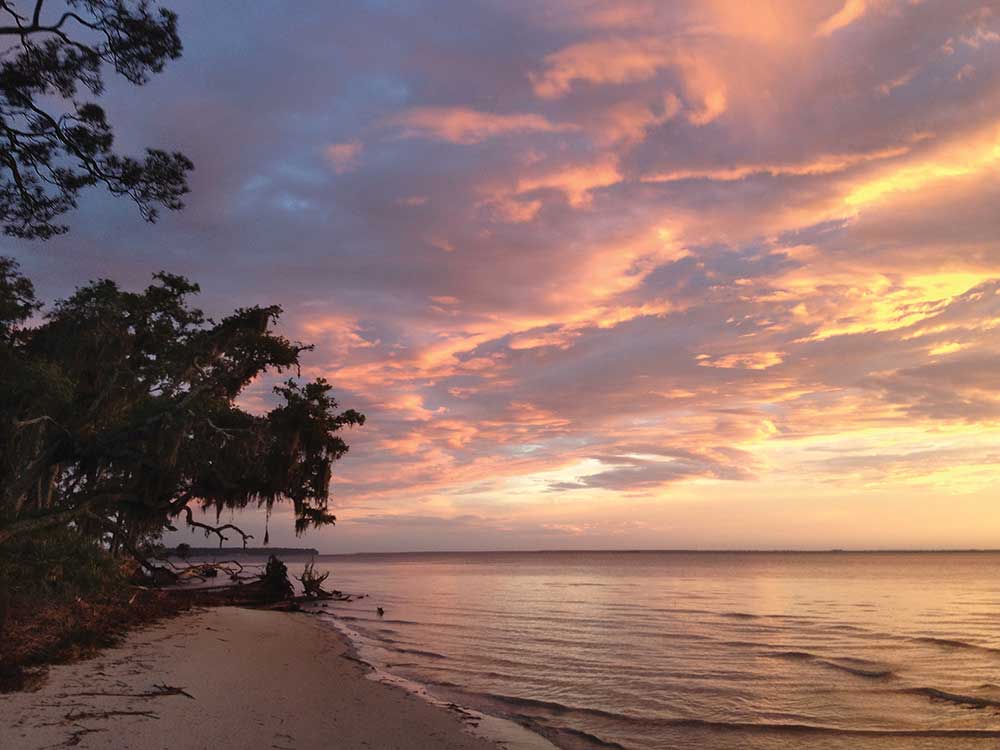Hikers endangered by proposed spaceport next to Cumberland Island National Seashore
Hikers in the Cumberland Island National Seashore may soon find themselves setting up camp below a rocket trajectory. From a site five miles away on the adjacent mainland, private companies will be launching rockets, with no established track record, directly over Cumberland Island—the country’s largest and wildest barrier island national park and a United Nations Global Biosphere Reserve.
Dozens of species of endangered wildlife—including shorebirds and sea turtles—rely on Cumberland Island’s ancient live oak forests, windswept marshes, and wild, undeveloped beaches. The island also attracts over 50,000 hikers and campers each year.
Space exploration is important and valuable, but the proposed spaceport in Camden County is the worst possible site for a spaceport. The proposed site is a toxic dump owned by Dow Chemical that requires massive remediation. Previously, Morton Thiokol, Inc. manufactured tear gas, ordnance, and booster rockets on the site for decades. Those Thiokol-built rockets failed and caused the infamous shuttle Challenger to explode just 73 seconds into flight in 1986.
Union Carbide purchased the site in the 1980s and produced highly toxic methyl isocyanate gas, the same gas responsible for a 1984 tragedy at a Union Carbide plant in Bhopal, India, that killed 20,000 people. Union Carbide also produced other pesticides on the site for decades. Dow Chemical bought Union Carbide and the site in 1999.
Georgia’s Environmental Protection Division has detected at least 37 hazardous chemicals in the soil. Construction on this site could release unknown quantities of mercury, rocket fuel residues, pesticide wastes, and other known toxins and carcinogens into the waterways, marshes, estuaries, aquifers, around Cumberland Island. That would have direct effects on the shrimp and seafood industry, recreation, and tourism of southern Georgia and northern Florida.
The Camden County Commissioners are the motivating force behind the idea of a private spaceport, which they hope will further local economic development, even if diminishing the value of Cumberland Island National Seashore and endangering public health. So far, no companies have committed to use Spaceport Camden, and many other similar spaceports across the country remain unused.
The Federal Aviation Administration (FAA) has produced a Draft Environmental Impact Statement (DEIS) which sanctions visitors to the park to remain on the island during launches. They are, in other words, disposable. No member of the public has ever been allowed to remain beneath the trajectory of a rocket. Nor has launching rockets over private homes and a national park with 50,000 annual visitors ever occurred. The danger of exploding rockets is too great.
According to the FAA report, one to three explosions are expected to occur every two years. Fiery debris would rain down on Cumberland Island’s campsites, beaches, and historic structures. Spills and explosions could contaminate the entire area for decades. What other national park or neighborhood in America faces the prospect of destruction every year-and-a-half as a result of the actions of its own local government?
The FAA’s report failed to include a required hazard analysis for rocket explosions over Cumberland Island and the adjacent mainland, which would include estimates of human fatalities and impacts to fisheries. This lack of transparency with continued efforts to move ahead is troubling. How can the FAA decide that the interests of a commercial rocket company are more important than the safety of citizens and their rights to visit a national park?
Few people outside of southeast Georgia are aware of the proposed spaceport. The public needs to know what we may all soon lose: one of the country’s wildest and most beloved national parks could be in the fallout zone of exploding rockets. Check www.WildCumberland.org for updates. The FAA is ready to green-light Camden County’s spaceport project. The Final Environmental Statement for the action has not been released, but the FAA has received an application for a Launch Operator’s License from Camden County.
The countdown has begun.








